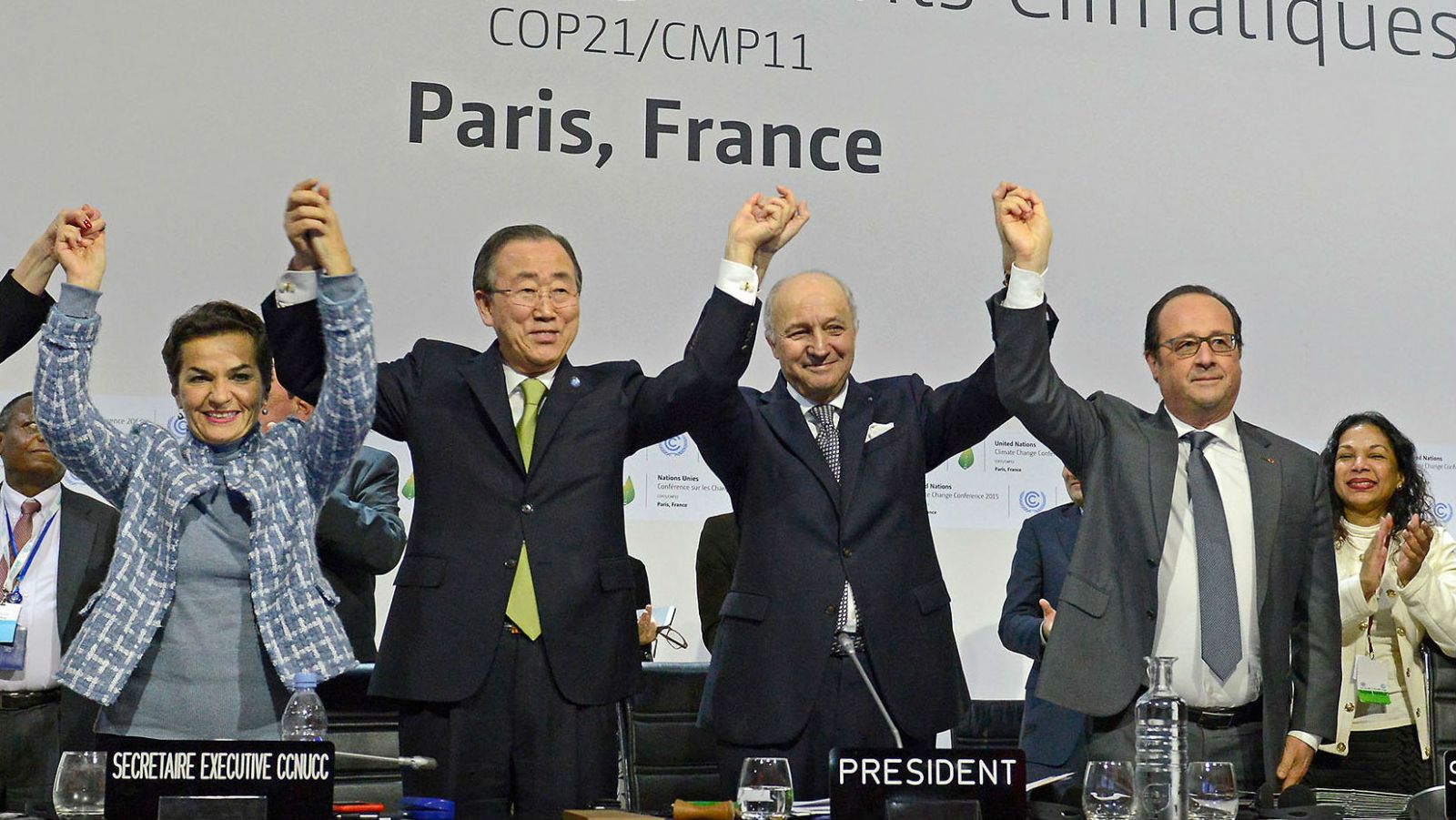Paris Agreement Enters Into Force November 4

The Paris Agreement on climate change signed by world leaders in April is set to enter into force on November 4, as more and more countries sign onto the accord.
“Global momentum for the Paris Agreement to enter into force in 2016 has been remarkable,” said United Nations Secretary-General Ban Ki-moon. “What once seemed unthinkable is now unstoppable.”
Adopted in Paris by the 195 Parties to the U.N. Framework Convention on Climate Change (UNFCCC) at a conference known as COP21 in December, the Agreement calls on countries to combat climate change and to accelerate and intensify the actions and investments needed for a sustainable low-carbon future, as well as to adapt to the increasing impacts of climate change. Specifically, it seeks to limit global temperature rise to well below 2 degrees Celsius, and to strive for 1.5 degrees Celsius.
The pact – which was signed in New York on 22 April by 175 countries at the largest, single-day signing ceremony in history – will enter into force 30 days after at least 55 countries, accounting for 55 percent of global greenhouse emissions, deposit their instruments of ratification, acceptance or accession with the Secretary-General.
This week, New Zealand and India signed onto the Agreement, following the 31 countries which joined at a special event at the U.N. on September 21 during the U.N. General Assembly’s general debate. Earlier that month, the world’s two largest emitters, China and the United States, joined the Agreement.
The Agreement will now enter into force in time for the Marrakech Climate Conference (COP 22) in Morocco on November 7, where countries will convene the first Meeting of the Parties to the Agreement.
ICS Presses IMO for Timeline
As a considered response to the Paris Agreement on climate change, the International Chamber of Shipping (ICS) has pledged support for the development of a timeline for the reduction of the shipping sector's GHG emissions.
ICS has proposed that the details of a CO2 reduction commitment should be developed on behalf of the sector, as soon as possible, by the IMO.
About 90 percent of global trade is moved by cargo ships which are collectively responsible for about 2.2 percent of the world's total Green House Gas (GHG) emissions (similar to that emitted by international aviation).
Responding to the expectation that the International Civil Aviation Organization (ICAO) may reach agreement this week on a CO2 reduction plan for the aviation sector, ICS Chairman, Esben Poulsson, said: “Shipping is the only industrial sector which already has a mandatory global CO2 reduction regime in place, applicable to the entire world fleet and which predates the Paris Agreement by four years. Shipping has a very good story to tell. The most recent data from 2014 shows that shipping reduced its total CO2 emissions by over 10 percent in just five years, despite continuing growth in maritime trade.
“The binding IMO rules, in force worldwide since 2013, will mean that future ships will be even more efficient and most ships built after 2025 will be at least 30 percent more efficient than those delivered in the 2000s. It is amazing to consider that the most efficient ships today only burn one gram of fuel per ton of cargo moved one kilometer. With bigger ships, better engines, cleaner fuels and operational efficiency measures such as satellite-assisted speed management, we are confident of reducing CO2 emissions per ton-kilometer by 50 percent by 2050.”
Despite their current reliance on fossil fuels, individual ships are becoming far more efficient, says Poulsson. However, the industry also wants IMO to respond to the challenge of addressing the total CO2 emissions from the sector. The first step will be a global CO2 data collection system for ships, which IMO Member States will officially establish this October, with full industry support. This system should then become fully operational by 2018.
ICS asserts that, in the same way that governments under the Paris Agreement have set out Intended Nationally Determined Contributions (INDCs) for reducing the total GHG emissions by their national economies, IMO needs to do something similar on behalf of the international shipping industry, even though it is a sector and not a country.
Poulsson says: “We wish to see IMO Member States adopt a course similar to that agreed by governments in Paris and which reflects the spirit of the Agreement. This will help IMO Member States to demonstrate they are serious about building on the real progress already made by the shipping industry to reduce CO2. Our hope is that this can be done in a way that will also be acceptable to developing nations whose support will be vital if IMO is to continue making progress on a global basis.”
The Paris Agreement on climate change makes no explicit reference to international transport. But the UNFCCC Kyoto Protocol, which is still in force, makes clear that both the shipping and aviation sectors have a responsibility to reduce their GHG emissions.
